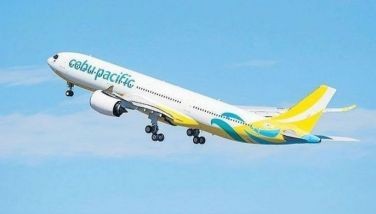Philippines out of US piracy list for 6th year

MANILA, Philippines — For the sixth year, the Philippines has been kept out of the US government’s list of countries with problems on intellectual property rights (IPR) enforcement.
While the Philippines remained off the list, the US government said the country would need to address the issue of government use of unlicensed software.
Speaking at the IP Convergence 2019 Forum yesterday, IP Office of the Philippines director general Josephine Santiago said the country remained out of the US Trade Representative’s (USTR) 2019 Special 301 Report.
Released annually, the Special 301 Report identifies countries where IP protection and enforcement is weak and where US individuals relying on IP protection encounter difficulty in fair and equitable market access.
The Philippines has consistently remained out of the report since 2014.
“It is but fitting that we’ve gotten this news as we’re capping off April as the National IPR month. This recognition signifies our IP system is headed in the right direction. While this is very welcome news, much work still needs to be done on strengthening the IP system as a whole, not just in enforcement. We won’t be resting on our laurels, it is a continuing challenge to develop a culture of respect for intellectual property,” Santiago said.
For the 2019 Special 301 Report, the Philippine government through the IPOPHL submitted comments to the USTR last February.
In its comments, the IPOPHL reported gains in IPR protection, promotion and enforcement such as the renewed memorandum of understanding with the United Kingdom IP Office to strengthen IP enforcement; continued workshops and projects with the European IP Office on IP enforcement capacity building; and legislative amendments being pushed to the IP Code which include higher penalties and longer imprisonment period for IP infringement, and the authority of the IPOPHL director general to block access to websites or take down infringing materials and articles posted online.
Even as the Philippines was kept out of the Special 301 Report’s watch list, the US government said further work is needed in terms of addressing government use of unlicensed software.
Apart from the Philippines, other countries which need to address the use by government agencies of unlicensed software are Argentina, Brazil, Chile, China, Costa Rica, Egypt, Greece, Indonesia, Kenya, Mexico, Nigeria, Romania, Russia, Thailand, Ukraine and Vietnam.
“The US urges trading partners to adopt and implement effective and transparent procedures to ensure legitimate governmental use of software,” the USTR said.
In response, Santiago said the IPOPHL would meet with the relevant government agencies to discuss how to address the issue.
“Definitely, it is also our position that the government should be an example to all sectors of the society. That is, of course, with the hope of necessary budget for procurement of necessary licensed software we need within the year. So, hopefully by next year, if there are still issues on their IT (information technology) system within the office, they could be able to address this and solve what is really the appropriate way for us, but to use licensed software,” she said.
She said using unlicensed software poses risks to the different agencies’ data.
“It’s really dangerous for the information, the data that they have especially when it is the government having all those information that you have. Security is at the lowest. IPOPHL would really like to promote the use of licensed software by all sectors of society,” she said.
A study conducted by International Data Corp. and commissioned by the Software Alliance or BSA showed the Philippines’ unlicensed software usage rate was at 64 percent in 2017, higher than Asia Pacific’s average of 57 percent.
- Latest
- Trending





























